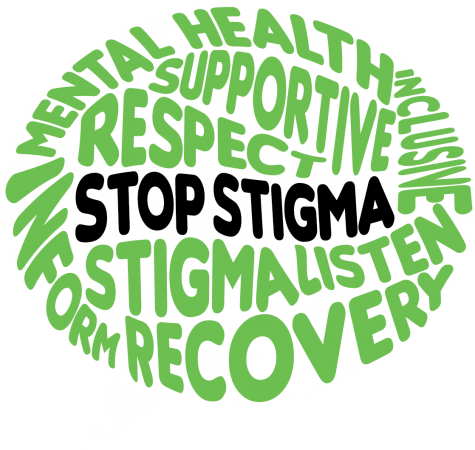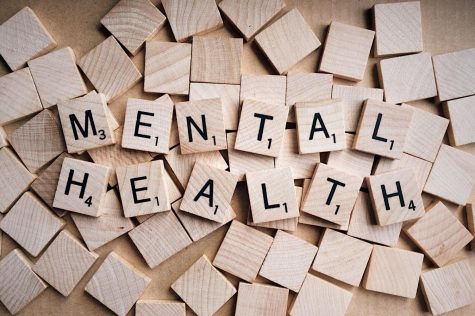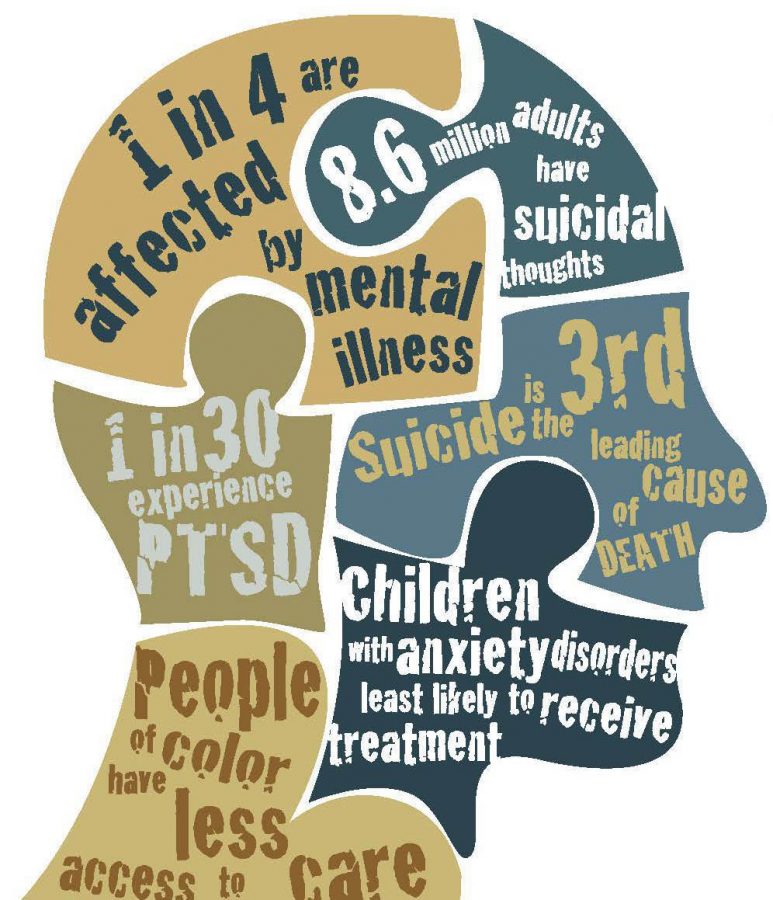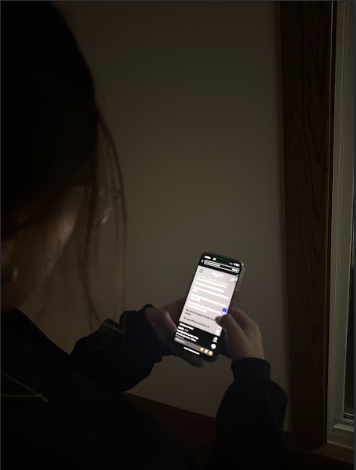World Mental Health Day
World Mental Health Day, observed every year on Oct. 10, is a day dedicated to increasing the awareness of mental health issues around the world and mobilizing efforts in support of mental health, according to the World Health Organization (WHO).
This day is meant to empower those with mental illnesses to overcome stigma, discrimination, and misconceptions about their illness and to get the right treatment they need; with thousands to millions of new cases of a mental illness per year in the United States alone, a day that raises awareness for mental illness is needed more than ever.
Mental Health by the Numbers
Mental health has become a more prevalent topic recently in the media, with more and more people every day talking about it and addressing mental health concerns. However, the numbers of those suffering from mental illnesses are still high.
According to the National Alliance on Mental Health (NAMI), “approximately 1 in 5 adults in the U.S.—43.8 million, or 18.5 percent—experiences mental illness in a given year,” and that “approximately 1 in 5 youth aged 13–18 (21.4 percent) experiences a severe mental disorder at some point during their life,” with half of all mental illnesses beginning by 14 years of age. Most cases, however, go undetected, causing mental illnesses to progress to even bigger problems.
In fact, the WHO notes that mental illness accounts for more disability in developed countries than any other group of illness, including heart disease and cancer, the biggest killers in the world. Yet, about 50 percent of individuals with severe psychiatric disorders receive no treatment at all.
Even though mental illness is widespread, only about six percent (14 million) of those suffering in the U.S. have a debilitating mental illness that keeps them from work, school, and a normal life.
Mood disorders are some of the common forms of mental illness in the world, with approximately 21 million people (9.5 percent of the U.S. population) accepted by them in the United States alone. According to NAMI, these types of disorders are the third most common cause of hospitalization in the U.S. for both youth and adults aged 18-44, primarily because mood disorders encompass manic disorder, depression, and a combination of the two.
Manic disorder typically makes a person feel like they can do anything. Those with manic disorder also partake in reckless behavior often and are more likely to do dangerous and harmful acts, increasing their chances of being hospitalized

Depression and suicide infographic.
According to the WHO, depression affects more than 300 million people worldwide. It is also considered the world’s leading cause of disability. Self-harming acts such as cutting or burning oneself or suicide acts or attempts can also result in high hospitalization numbers, with suicide being the second leading cause of death among 15-29 year-olds, and 55 percent of suicides globally are from those aged 15-44, reports the WHO.
It is estimated that every 40 seconds, someone kills themselves, while in 2020, that number is expected to be one death every 20 seconds. In the past 45 years, suicide rates have increased 60 percent worldwide, with adolescents being the most at risk.
If you or someone close to you is experiencing thoughts about death or suicidal threats or attempts, call 911 or contact the National Suicide Prevention Lifeline immediately.
Anxiety mental disorders are another common mental illness, especially among teenagers, with 25 percent of all teens diagnosed with an anxiety disorder. They are also the most common of all mental illnesses, affecting more than 40 million adults (or 18.1 percent) of the U.S. population per year. However, anxiety disorders go beyond temporary anxiety and affect the sufferer’s daily life, job, and relationships.
Stigma
Often, those who have a mental illness receive comments such as “It is just a phase,” “You could control it if you tried,” or “You are just seeking attention.” Those suffering often face prejudice, misconceptions, stereotypes, and discrimination.
Student assistance counselor Danielle Wysocki, says, “I believe that there continues to be a stigma surrounding mental illness, which causes people to feel ashamed for something that is out of their control and prevents people from seeking help.”

Stop stigma.
Mental illness stigma can be combated though.
The acronym UNITE, created by Theravive, a mental health awareness and therapist network, is easy to remember and spreads both knowledge and compassion in the fight to end mental illness stigma.
‘U’ stands for understanding. Just as Wysocki says, “Education and awareness is key!” Especially in a society where mental illness and mental health is not a well-discussed topic, educating oneself to understand different mental illnesses and ways to maintain mental health, is vital to ending stigma.
‘N’ stands for nurture mental health. Do things for yourself and others that will nurture your mental health and encourage friends, family, and even strangers to do the same.
‘I’ stands for include others. “Treat everyone with respect and dignity. Do not discriminate [against] individuals who are suffering, but rather embrace and support those in need,” Wysocki notes.
‘T’ stands for talk. Inform others about mental illness and mental health, after all, the more people who openly talk about such subjects are bringing more needed awareness to it.
‘E’ stands for embrace therapy. A doctor is to physical health as a therapist is to mental health. Never do people hear insulting comments about someone needing to go to the doctor if their sick or injured, yet those trying to receive help and treatment from a therapist often face negative and ostracizing comments.
Prevention
The media is filled with ways to prevent diseases such as heart disease, diabetes, obesity, and cancer, and while those are topics that still need to be addressed, prevention of mental illness, the silent killer, is never discussed.
According to Wysocki, “Mental health is an important part of everyone’s life. Your mental health affects how you think, which then affects how you feel, and then, how you act.” She continues with, “Taking care of your mental and emotional health is just as important as taking care of your physical health.”
Mental illness is just as serious and threatening as any physical illness, and should not be taken lightly. Thorough research into mental health and illness that is equal to the research of physical diseases is a step in the right direction to changes people’s minds about the severity and implications of mental illness and what it can do to one’s life.
As of 2016, the National Institutes of Health (NIH) reported that heart disease, cancer, and diabetes, will receive budgets of $1.3, $5.7, and $1 billion, while anxiety disorders and depression (the most common mental illness), will receive a much smaller budget, at $163 and $406 million respectively.

Mental Health
Despite the lack of research, there are ways to help prevent the onset of mental illness. According to Wysocki, there are six primary ways to maintain mental health.
- “Stay connected- maintaining social connections and genuine relationships is important.
- Stay active- exercise reduces stress and increases mental and physical health.
- Eat a well-balanced diet.
- Get enough sleep.
- Resilience- understand that there will be ups and downs, however, the most important part is that you know how to get back up.
- Maintain healthy, realistic, and attainable goals.”
To sum up, Wysocki put it as, “developing important mental health habits- like your coping skills, how to reduce stress, how to make good choices, be resilient- are all things that will lead your mental health in the right direction for the rest of your life.”
Treatment
While treatment differs from illness to illness, they all start with getting help. Telling a friend or family member that you trust will help you get treatment is a step in the right direction.
“Open up to someone [you] feel most comfortable talking with, [like] an adult who you believe will support [you] through the process of seeking [professional] help,” says Wysocki.
For those who are seeing someone close to them go through treatment, make sure that they feel supported and they can trust you if they need to talk. Studies show that those in treatment that have a large and supportive system by their side are more likely to recover quicker and less likely of their mental illness returning.
Note: At KHS, a student can seek out assistance from school counselors, student assistance counselor, the school psychologist, school nurse, and any teacher. School counselors are bound by a confidentiality policy, meaning they will not divulge anything a student says to them unless it poses a threat or danger to the student or others.
For more information on the National Alliance on Mental Health, visit: https://www.nami.org/
For more information on the World Health Organization, visit: http://www.who.int/
For more information on the National Institute of Mental Health, visit: https://www.nimh.nih.gov/index.shtml









